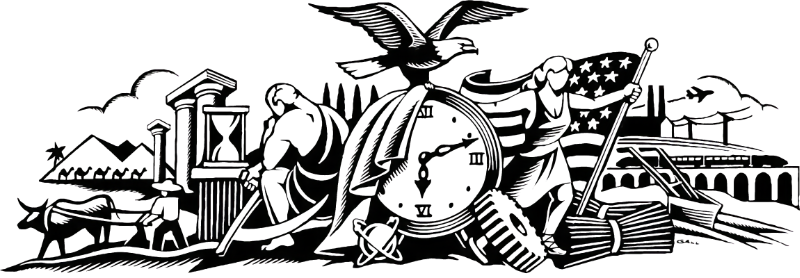From The Birmingham Age Herald, July 11, 1915.
Jim and Joe were boys together,
Knew the same swift forest streams,
Roamed the same fair fields and heather
In the Land of Hope-filled Dreams.
Jim was filled with strange ambition,
Wealth he’d wanted from the start;
Different was Joe’s condition—
He wanted but a tender heart.
Two fair sisters soon they married—
All seemed happy for a while—
But not long at home Jim tarried
Ere he sought Wealth’s fickle smile.
Joe but labored through the morning,
Often, too, into the night;
For his wage, the smile adorning
Wife’s and baby’s faces bright.
Jim grew rich, and with his power
O’er his fellows held a sway,
But, with every passing hour
Love was stealing swift away.
Soon the maid whom Jim had married
Bowed her head and smiled the less;
Bravely, though, her cross she carried,
Speaking still of “Jim’s success.”
Wealth was theirs, all of its treasure
Theirs to gloat o’er every day;
Yet they’d lost in greater measure—
Wealth had driven love away.
Joe met many sad reverses.
Unto him was fortune vile;
Yet he never indulged in curses,
Rather did he seem to smile.
Though he hoped for fortune later,
With a faith in God above,
He had found a treasure greater
In the wealth of Mary’s love.
Though success and wealth we’re after,
Oft we’re losers in the end—
Love makes best its own sweet laughter,
Hardship is its truest friend.
